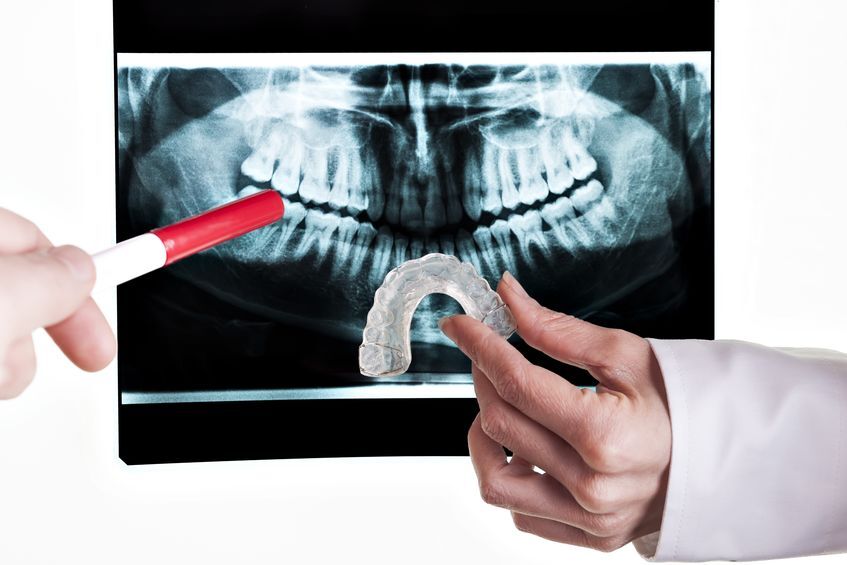Causes of Bruxism
Among the causes of bruxism are stress and anxiety. Additionally, the most recent studies show that it is a direct response to sleep breathing issues, such as sleep apnea.
From a dental point of view, bruxism is characterized by:
- Premature wear of the chewing surface of the teeth;
- Wearing of the teeth near the gums, known as « abfraction »;
- Tooth sensitivity.
Some signs also appear at the muscular level:
- The patient may, over time, wake up in the morning feeling tension in the facial muscles as well as the trapezius (back muscles) or even in the lower back.
- The patient may suffer from headaches early in the morning or late at night.
In times of professional or personal great fatigue or stress, these symptoms may aggravate.
In the long run, untreated bruxism may affect the temporomandibular joints, causing wear, discomfort and subluxations of the jaw. It can also cause gingival recession, which is a receding gum line.
When neuromuscular symptoms become more severe, the ears may even become congested, resulting in dizziness, neck and shoulder pain, and a reduced ability to open the mouth.
Thus, bruxism should not be taken lightly.

